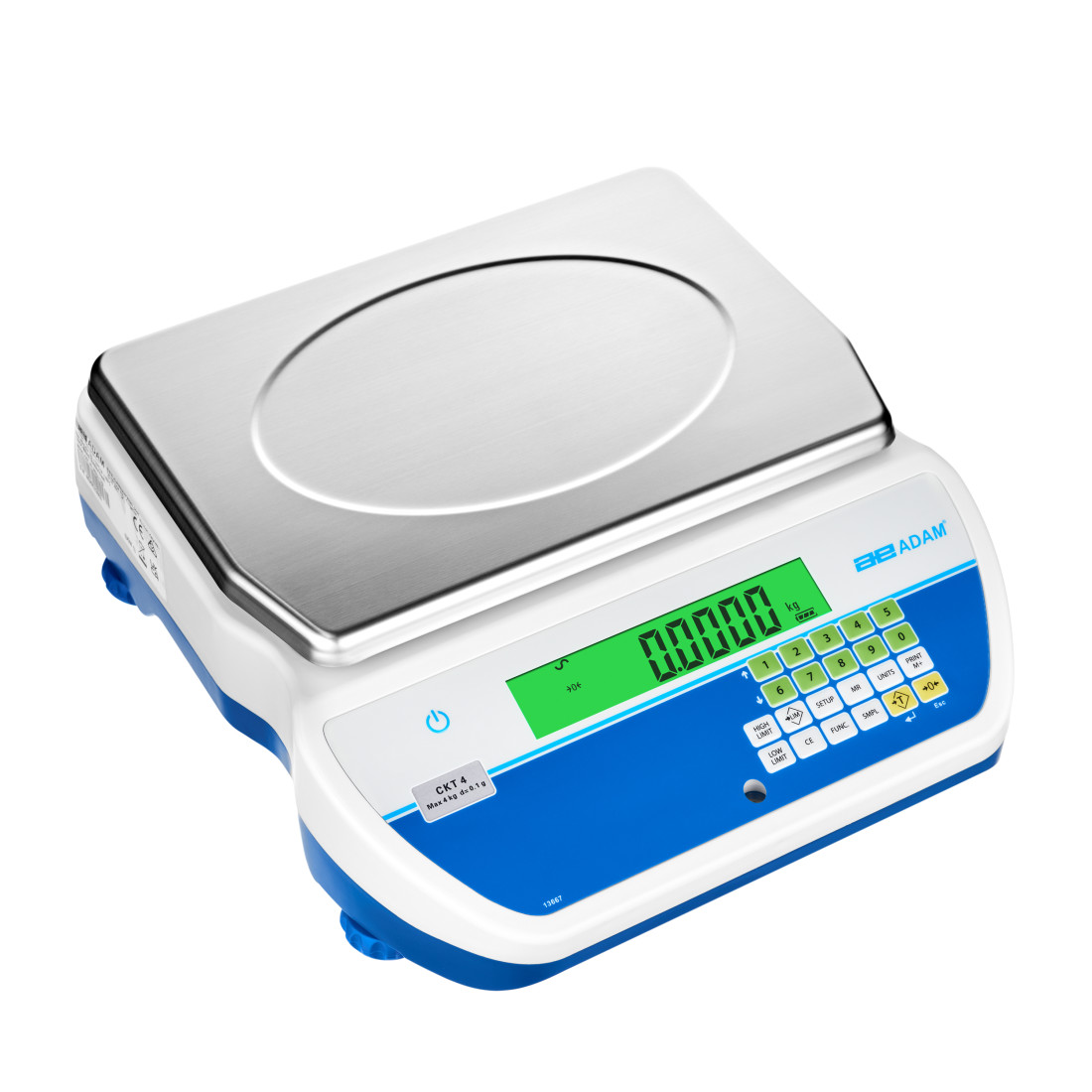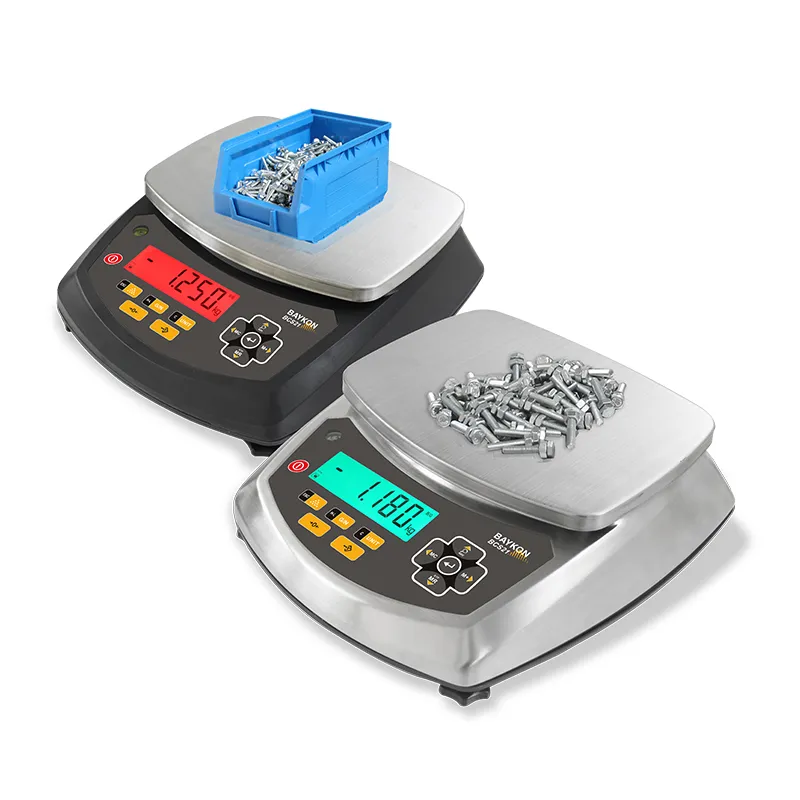Just How Industrial Scales Work: A Comprehensive Summary for New Users
Comprehending the mechanics behind commercial scales is crucial for brand-new individuals who desire to ensure accuracy in their dimensions. As we discover these elements, one must consider how these elements interact to boost performance in diverse industrial applications.
Fundamentals of Industrial Scales
Industrial scales are necessary tools made use of across different markets, consisting of production, logistics, and agriculture, to guarantee accurate weight measurements of heavy tons. The basic concept behind industrial scales includes the conversion of weight right into a measurable form that can be displayed digitally or analogically. These ranges employ various devices, such as tons cells or mechanical levers, to establish the weight of items put upon them.

Along with their measurement capabilities, commercial scales are made to hold up against extreme settings, including durable building that withstands dust, dampness, and heavy influences. Calibration and maintenance are crucial to make certain precision, as even small disparities can bring about substantial economic effects. By comprehending the essentials of industrial ranges, individuals can appreciate their significance in different commercial applications.
Kinds of Industrial Scales
Numerous sorts of commercial scales deal with the varied requirements of various markets, each created to handle specific considering jobs with precision and dependability. Amongst the most common types are flooring ranges, which are ideal for considering hefty and large products. These ranges usually include large platforms and can fit palletized items, making them necessary in stockrooms and shipping facilities.
One more type is bench ranges, which are often used for smaller sized products in manufacturing and retail setups. They offer precise measurements for products that need accuracy, such as chemicals or components in assembly lines (Industrial Scales). For mobile operations, portable ranges offer versatility and convenience of transportation, appropriate for fieldwork or temporary setups
In applications needing high-capacity measurements, such as in mass material handling, crane scales and tons cells are utilized. These ranges can determine loads put on hold from a crane or various other lifting device, ensuring safety and security and accuracy during operations. Additionally, specialized scales like checkweighers are made use of in production lines to preserve high quality control by ensuring that products meet weight requirements. Each type of commercial range plays an important duty in enhancing operational effectiveness and precision throughout various sectors.
How Considering Systems Job
Considering devices are necessary elements that enable accurate measurement of mass throughout various industrial scales. These devices use various principles of physics and engineering to provide precise weight readings, necessary for supply administration, quality control, here are the findings and compliance with regulatory criteria.
One usual kind of considering mechanism is the lots cell, which operates the principle of pressure determines. When a lots is applied, the load cell flaws a little, creating an electric signal proportional to the weight. This signal is after that transformed helpful resources into a legible weight measurement by the range's electronic devices.
One more widely made use of device is the mechanical balance, which utilizes a system of weights and levers. Industrial Scales. This method relies on the principle of balance, where the weight of the object being gauged is balanced against recognized weights, enabling straight measurement
Furthermore, pneumatic and hydraulic ranges utilize fluid dynamics concepts to gauge weight. These systems make use of the pressure exerted by a tons to determine weight, offering high precision for huge loads.
Appropriate Use Techniques
When using industrial ranges, sticking to appropriate use methods is crucial for maintaining and ensuring accurate measurements tools honesty. It is essential to choose the suitable range for your specific application, as ranges vary in capacity and accuracy.
Before weighing, make sure that the range is put on a steady, degree surface area free from resonances or disturbances. This will assist to decrease errors brought on by external elements. In addition, calibrate the range according to the supplier's specifications prior to use, making certain that it is operating appropriately.
When positioning things on the scale, distribute the weight uniformly to prevent tipping or harming the equipment. Always allow the scale to stabilize before tape-recording the weight, as fluctuations may happen throughout preliminary placement. For bulk products, use containers that are ideal for the range size to avoid overloading.
Moreover, stay clear of placing cool or overly warm products straight on the scale, as temperature level variants can impact accuracy. Maintain the weighing system free and clean of particles to stop contamination and make sure trustworthy outcomes. By adhering to these strategies, users can maximize the performance and longevity of their industrial ranges.
Maintenance and Calibration Tips
Guaranteeing the long life and precision of industrial scales requires thorough check that upkeep and normal calibration. A preventive upkeep timetable is crucial; it must include regular examinations to identify wear and tear, particularly on tons cells and various other sensitive components. On a regular basis cleaning up the range's surface area and making certain the surrounding location is cost-free from particles will certainly help preserve its integrity and performance.
Calibration is just as important and ought to be performed at normal intervals or whenever the range experiences substantial adjustments in temperature, humidity, or physical displacement. Utilize qualified calibration weights that are traceable to nationwide standards for precision. Paper each calibration session diligently to track performance over time and identify any type of trends or recurring problems.
Train all drivers on appropriate scale use and upkeep procedures to guarantee constant efficiency and precision. By adhering to these upkeep and calibration ideas, customers can boost the integrity of their industrial scales, ensuring optimum procedure in any setting.
Final Thought

Comprehending the auto mechanics behind industrial ranges is vital for new individuals that want to make sure accuracy in their dimensions.Industrial ranges are crucial tools used across various sectors, including production, logistics, and agriculture, to guarantee precise weight dimensions of heavy loads. The basic concept behind industrial scales includes the conversion of weight into a quantifiable kind that can be displayed electronically or analogically. By recognizing the basics of industrial scales, individuals can value their value in various commercial applications.
In verdict, understanding the procedure and maintenance of industrial ranges is important for guaranteeing exact weight measurements in various applications. (Industrial Scales)